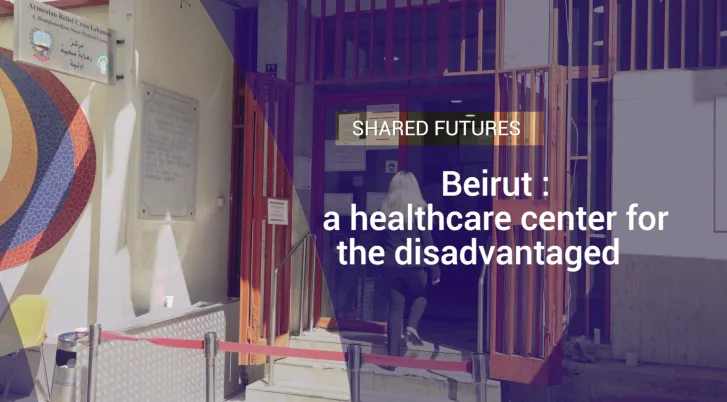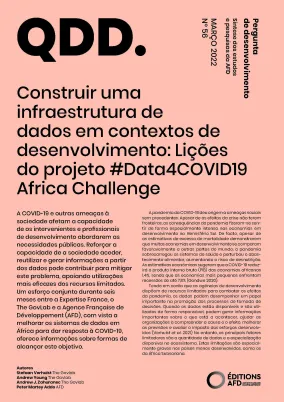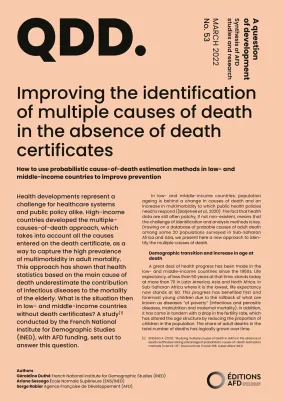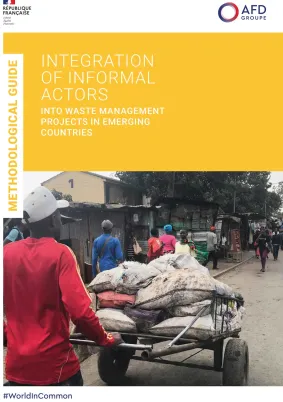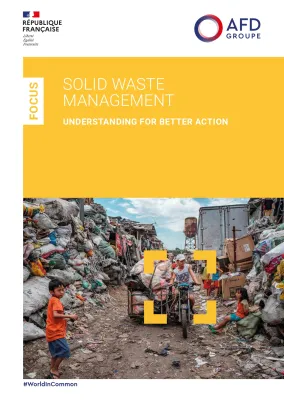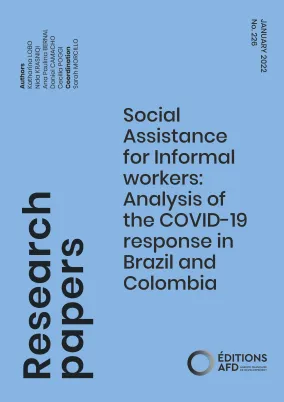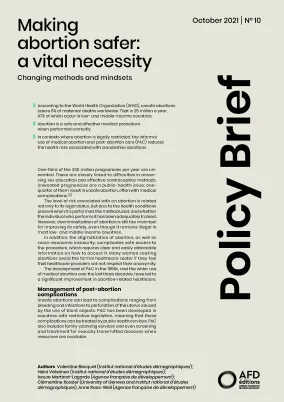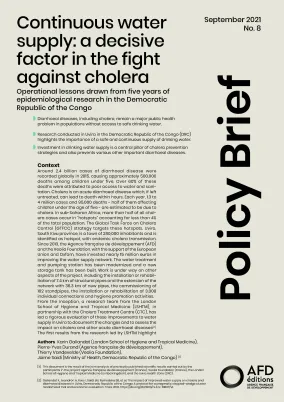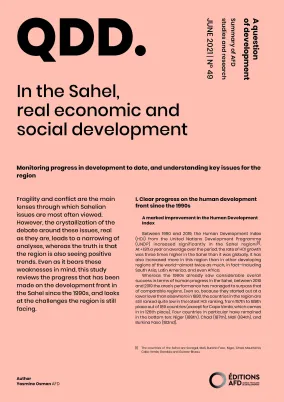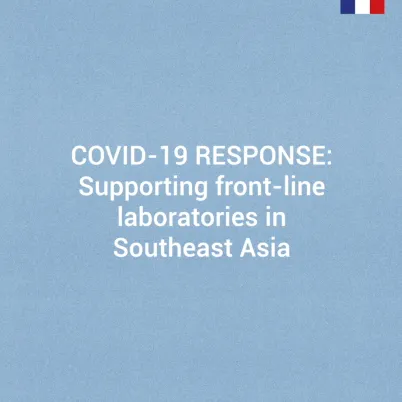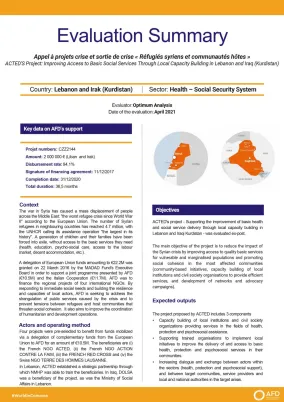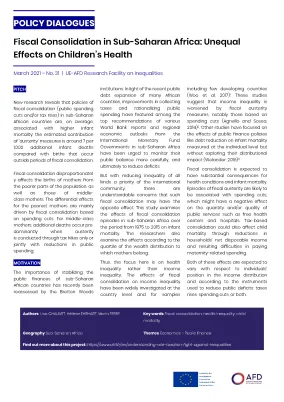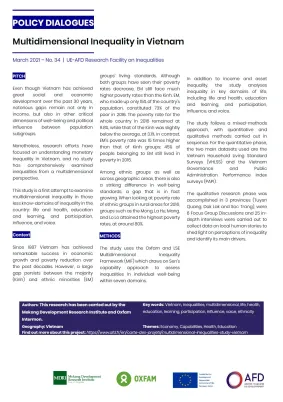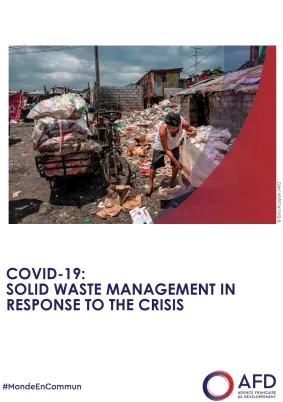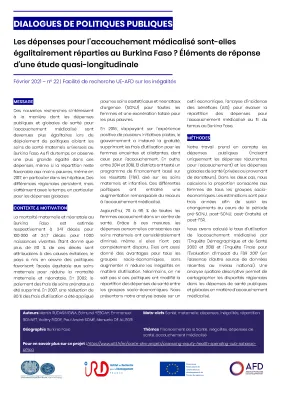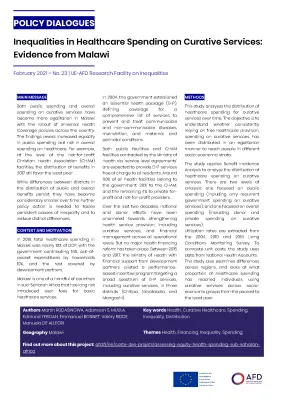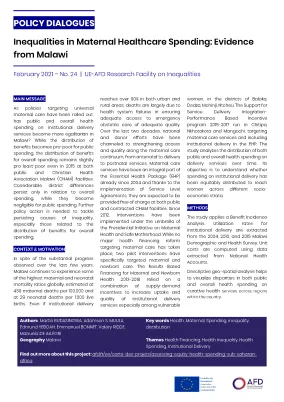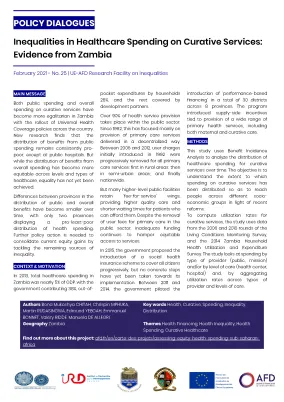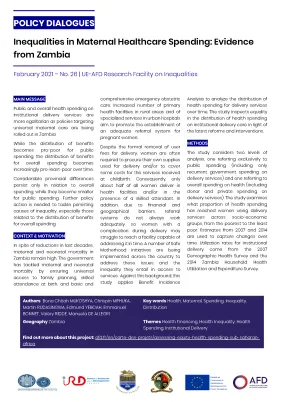Publications and media
Beirut: a healthcare center for the disadvantaged
In a context of deterioration of the Lebanese health system, AFD, trough Minka Peace and resilience fund, has decided to intervene to ensure the provision of quality and sustainable health care to Leb...
Published on
Building Data Infrastructure in Development Contexts: Lessons from the #Data4COVID19 Africa Challenge
COVID-19 and other societal threats hamper the ability of development practitioners and stakeholders to address public needs. Bolstering society’s ability to responsibly access, re-use and generate in...
Published on
Improving the identification of multiple causes of death in the absence of death certificates
Health developments represent a challenge for healthcare systems and public policy alike. High-income countries developed the multiplecauses-of-death approach, which takes into account all the causes...
Published on
Methodological Guide: Integrating Informal Actors into Waste Management Projects in Emerging Countries
Whether we call them chiffonniers, cartoneros, pepanadores, zabbalin or ragpickers, historically and in most societies, the poorest have handled the management of household waste, in particular the wa...
Published on
FOCUS | Solid waste management
Mankind generates more than two billion tons of municipal solid waste every year; at least one third of this is not properly treated. This waste has a direct impact on health, climate, biodiversity an...
Published on
Türkiye: a new state hospital in Hatay
Built with the financing of the EU under the Facility for Refugees in Türkiye (FRiT), and implemented by AFD under a delegation of funds, the construction and equipment of the new hospital was led by...
Published on
Social Assistance for Informal workers
This paper exposes the measures extended to informal workers during the COVID-19 pandemic. The study analyzes two South-American countries which have a high percentage of informality, Colombia and Bra...
Published on
Making abortion safer: a vital necessity
One-third of the 200 million pregnancies per year are un- wanted. These are closely linked to difficulties in acces-sing sex education and effective contraceptive methods. Unwanted pregnancies are a p...
Published on
AFD Group, a partner for your development projects in Southeast Asia
AFD Group has been active in Southeast Asia for over 25 years. Find out what its strategic priorities are in the region and how it can support your projects to improve their impact! ©AFD2021
Published on
Continuous water supply: a decisive factor in the fight against cholera
Around 2.4 billion cases of diarrhoeal disease were recorded globally in 2015, causing approximately 500,000 deaths among children under five. Over 60% of these deaths were attributed to poor access t...
Published on
In the Sahel, real economic and social development
Fragility and conflict are the main lenses through which Sahelian issues are most often viewed. However, the crystallization of the debate around these issues, real as they are, leads to a narrowing o...
Published on
Covid-19 response: supporting front-line laboratories in southeast Asia
To support national reference laboratories in Southeast Asia in the face of the Covid-19 pandemic, AFD has granted additional financing of €2M to the ECOMORE II project implemented by the Institut Pas...
Published on
Evaluation Summary - ACTED’s Project: Improving Access to Basic Social Services Through Local Capacity Buildin...
In Lebanon and Iraq, in the health sector, the ACTED’S Project: Improving Access to Basic Social Services Through Local Capacity Building (CZZ2144) was subject to an evaluation in 2021. The main ob...
Published on
Fiscal Consolidation in Sub-Saharan Africa: Unequal Effects on Children’s Health
New research reveals that policies of fiscal consolidation (public spending cuts and/or tax rises) in sub-Saharan African countries are, on average, associated with higher infant mortality: the estima...
Published on
Multidimensional Inequality in Vietnam
Even though Vietnam has achieved great social and economic development over the past 30 years, notorious gaps remain not only in income, but also in other critical dimensions of well-being and politic...
Published on
Covid-19: Solid Waste Management in Response to the Crisis
It is essential for public health to ensure the continuity of solid waste management services in a safe and sustainable way, especially in case of sanitary emergency such as the Covid-19 crisis. Not o...
Published on
Inequalities in Maternal Healthcare Spending: Evidence from Burkina Faso
This brief examines how public and overall health spending on institutional delivery services have become more egalitarian as policies targeting universal maternal care have been rolled out in Burkina...
Published on
Inequalities in Healthcare Spending on Curative Services: Evidence from Malawi
Both public spending and overall spending on curative services have become more egalitarian in Malawi with the rollout of Universal Health Coverage policies across the country. The findings reveal inc...
Published on
Inequalities in Maternal Healthcare Spending: Evidence from Malawi
As policies targeting universal maternal care have been rolled out, has public and overall health spending on institutional delivery services become more egalitarian in Malawi? While the distribution...
Published on
Inequalities in Healthcare Spending on Curative Services: Evidence from Zambia
Both public spending and overall spending on curative services have become more egalitarian in Zambia with the rollout of Universal Health Coverage policies across the country. New research finds that...
Published on
Inequalities in Maternal Healthcare Spending: Evidence from Zambia
Public and overall health spending on institutional delivery services are more egalitarian as policies targeting universal maternal care are being rolled out in Zambia. While the distribution of benef...
Published on

